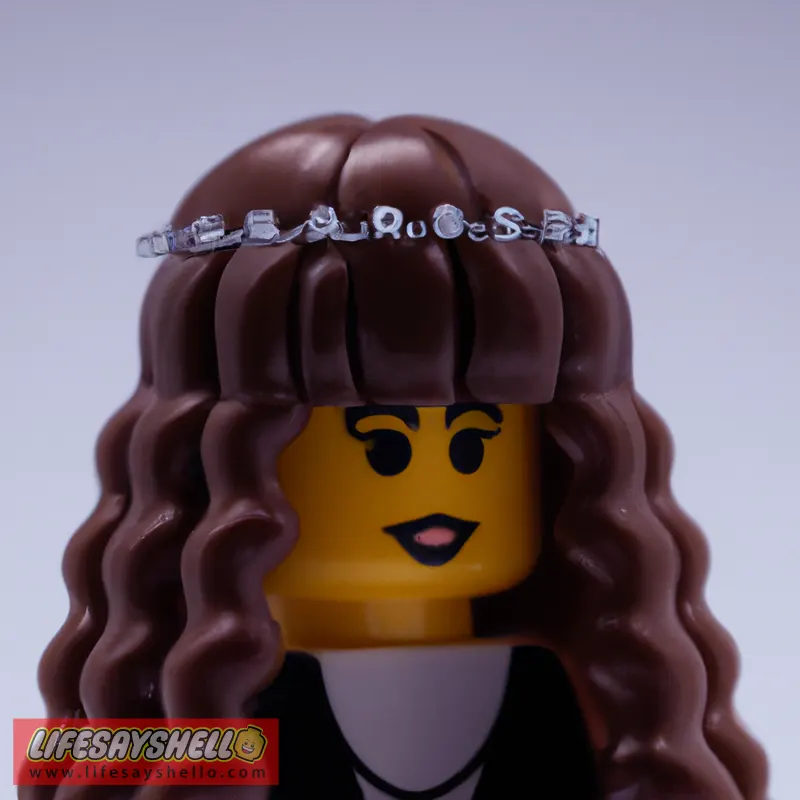The Surprising Tradition of Head Shaving Among Some Jewish Women

For most people unfamiliar with Orthodox Judaism, the idea that married Jewish women cover their hair can seem unusual. What may be even more surprising is that a small minority of very devout Hasidic women take hair covering to the extreme by shaving their heads completely after marriage.
While head shaving is an outlier practice limited to certain Hasidic sects, it offers a window into how strongly some Jewish women adhere to strict modesty norms. For these women, not a single strand of hair can be visible, leading them to the dramatic act of shaving their heads monthly. Yet at the same time, it's important to understand that the majority of Orthodox Jewish women do not remove their hair. They cover it in various ways, with head shaving only occurring among a small fraction of the devout.
Why Do Some Hasidic Women Shave Their Heads After Marriage?
For outsiders, it can be hard to comprehend why Hasidic women would shave off all their hair. But within the context of their beliefs, shaving takes on spiritual significance for these women.
Adherence to Modesty Standards
The practice originates from extremely strict standards of modesty within Hasidic communities. After marriage, women must keep their hair covered around anyone except their husbands and close relatives. For some Hasidic women, leaving even a single hair uncovered feels immodest. Shaving ensures not a strand could ever show.
Avoid Any Chance of Hair Being Exposed
These women worry that if they don't shave, some hairs may work their way loose from underneath a scarf or wig. So they remove the possibility entirely by shaving their heads. That way, no one but their husbands will ever see their hair.
Indication of Marital Status
Covering hair also publicly marks a woman's marital status. Her covered hair signals to other men that she is an unavailable married woman. For women who shave, a bald head under the headscarf leaves no doubt that the woman is married.
Biblical Origins
The practice has Biblical origins, drawing inspiration from Genesis 24 when Rebekah covers herself upon meeting Isaac, her intended husband. The story demonstrates the tradition of modesty around hair that began long ago.
Custom Began in 15th Century
Head shaving started as a custom among married Jewish women in Central and Eastern Europe in the 15th century. The practice took hold among pious women and became a sign of utmost modesty. It continues today in some Hasidic sects.
How Orthodox Jewish Women Cover Their Hair
It's important to understand that most Orthodox Jewish women do not remove their hair entirely. There are varying degrees of hair covering:
Scarves
Many Orthodox women cover their hair with a scarf or cloth known as a tichel or mitpachat. These stylish headscarves frame the face while keeping the hair covered.
Wigs
Other women wear a wig or sheitel. While wigs may seem contrary to the idea of modesty, they allow women to cover their real hair while still looking fashionable. Some women shave underneath wigs, while others do not.
Hairnets
More basic hair coverings like hairnets and snoods are also used. These control the hair under a scarf.
No Shaving
Most women who cover with scarves, wigs and nets do not shave their heads. Only the most zealous Hasidic women remove all their hair.
So in reality, head shaving is far from the norm. But for women who pursue it, it takes on deep spiritual meaning.
The Significance of Head Shaving for Hasidic Women
Even though few Jewish women shave their heads, it remains a significant practice within the Hasidic tradition.
Part of Cultural Identity
For Hasidic sects that shave, it is considered the proper way for righteous married women to cover their hair. The practice shapes the cultural identity of Hasidic women in those communities.
Seen as Most Modest Choice
Women who shave their heads likely view it as the most modest and strict way to adhere to hair covering guidelines. For them, it may feel like the only way to truly eliminate all risk of exposing their hair.
Minority Custom
At the same time, it's crucial to emphasize that head shaving is an outlier practice limited to a minority of Hasidic women. The custom is isolated to certain Hasidic sects in places like Hungary, Ukraine and Israel.
Most Orthodox Jews, even very devout ones, do not require women to shave their heads. So while dramatic, it remains confined to a small fraction of Jewish women who follow strict modesty codes. For them, shaving carries deep personal meaning and spiritual devotion. But it does not reflect the norms of the broader Orthodox Jewish community.
Why Most Jewish Women Don't Shave Their Heads
Given how uncommon head shaving is, even among the Orthodox, this raises the question - why don't more Jewish women remove their hair? There are a few key reasons:
Other Head Coverings Suffice
For most Orthodox women, covering their hair with wigs, scarves or other head coverings is sufficient to meet religious guidelines without having to shave their heads.
Not Required by Jewish Law
There is no definitive Jewish law that requires women to shave their hair. The custom developed independently within certain Hasidic sects.
Seen as Extreme
Jewish women who don't shave likely view removing all their hair as taking modesty too far. For them, it may seem like an unnecessary extreme.
Thin Hair Concerns
Some women may want to avoid scalp issues or thinning hair that could result from shaving their heads routinely.
Personal Preference
Simply put, most women prefer not to part with their hair completely. Their hair remains a part of their identity and femininity.
Ultimately, head shaving comes down to personal choice. While some Hasidic women adopt the practice quite strictly, plenty of others cover their hair in less drastic ways without removing it entirely.
Conclusion
Although unfamiliar to many outside of the Orthodox Jewish community, the custom of head shaving among married women persists in certain Hasidic sects. It stems from an ultra-strict interpretation of hair covering guidelines, driven by a desire for supreme modesty.
However, it's crucial to recognize that shaving one's head remains far from a universal Jewish practice. Most Orthodox women cover their hair without removing it completely. Within its limited scope, though, the tradition of head shaving reveals just how seriously some Hasidic women take marital modesty.
For them, shaving their heads holds personal spiritual meaning, even if it seems extreme to outsiders.




Comments